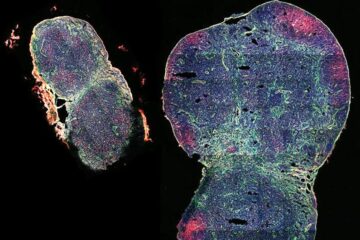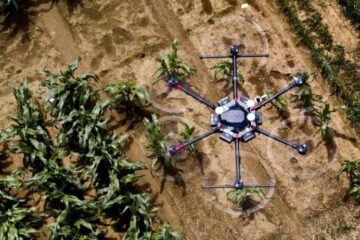Discovery of a biochemical basis for broccoli's cancer-fighting ability

They found for the first time that certain substances in the vegetables appear to target and block a defective gene associated with cancer. Their report, which could lead to new strategies for preventing and treating cancer, appears in ACS' Journal of Medicinal Chemistry.
Fung-Lung Chung and colleagues showed in previous experiments that substances called isothiocyanates (or ITCs) — found in broccoli, cauliflower, watercress, and other cruciferous vegetables — appear to stop the growth of cancer. But nobody knew exactly how these substances work, a key to developing improved strategies for fighting cancer in humans. The tumor suppressor gene p53 appears to play a key role in keeping cells healthy and preventing them from starting the abnormal growth that is a hallmark of cancer. When mutated, p53 does not offer that protection, and those mutations occur in half of all human cancers. ITCs might work by targeting this gene, the report suggests.
The scientists studied the effects of certain naturally-occurring ITCs on a variety of cancer cells, including lung, breast and colon cancer, with and without the defective tumor suppressor gene. They found that ITCs are capable of removing the defective p53 protein but apparently leave the normal one alone. Drugs based on natural or custom-engineered ITCs could improve the effectiveness of current cancer treatments or lead to new strategies for treating and preventing cancer.
The authors acknowledged funding from the Ruth L. Kirschstein National Research Service Award and a grant from the National Cancer Institute of the National Institutes of Health.
ARTICLE FOR IMMEDIATE RELEASE “Selective Depletion of Mutant p53 by Cancer Chemoprevention Isothiocyanates and Their Structure-Activity Relationships”
DOWNLOAD FULL TEXT ARTICLE http://pubs.acs.org/stoken/presspac/presspac/full/10.1021/jm101199t
CONTACT:
Fung-Lung Chung, Ph.D.
Department of Oncology
Lombardi Comprehensive Cancer Center
Georgetown University
Washington, D.C. 20057
Phone: 202-687-3021
Fax: 202-687-1068
Email: flc6@georgetown.edu
Media Contact
More Information:
http://www.acs.orgAll latest news from the category: Life Sciences and Chemistry
Articles and reports from the Life Sciences and chemistry area deal with applied and basic research into modern biology, chemistry and human medicine.
Valuable information can be found on a range of life sciences fields including bacteriology, biochemistry, bionics, bioinformatics, biophysics, biotechnology, genetics, geobotany, human biology, marine biology, microbiology, molecular biology, cellular biology, zoology, bioinorganic chemistry, microchemistry and environmental chemistry.
Newest articles

Insect research is revolutionized by technology
New technologies can revolutionise insect research and environmental monitoring. By using DNA, images, sounds and flight patterns analysed by AI, it’s possible to gain new insights into the world of…

Expanding a lymph node, boosting a vaccine
A biomaterial vaccine enhances and sustains lymph node expansion following vaccination, boosting anti-tumor immunity in an animal model. Each one of us has around 600 lymph nodes (LNs) – small,…

AI to Make Crop Production More Sustainable
Drones monitoring fields for weeds and robots targeting and treating crop diseases may sound like science fiction but is actually happening already, at least on some experimental farms. Researchers from…





















